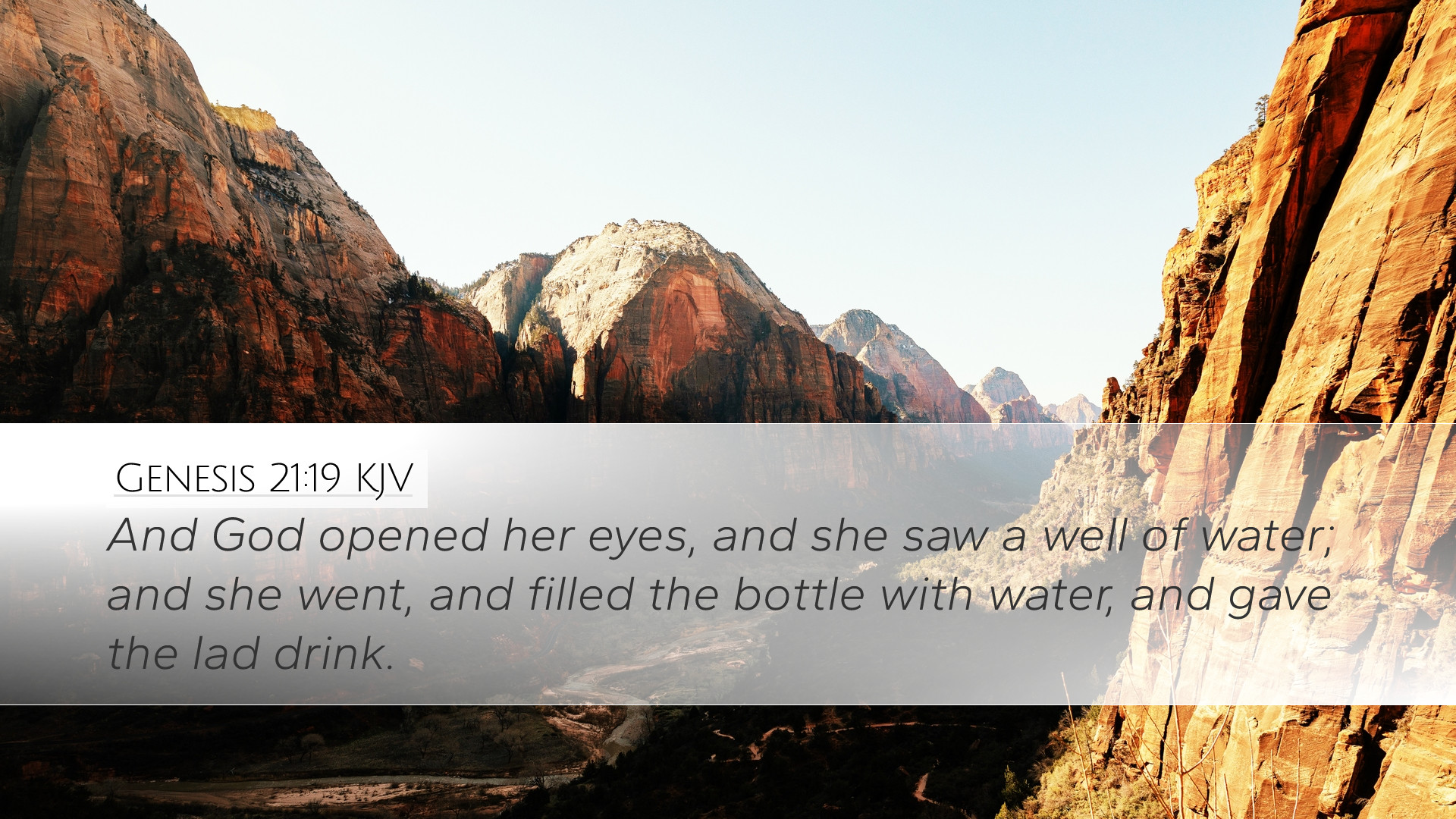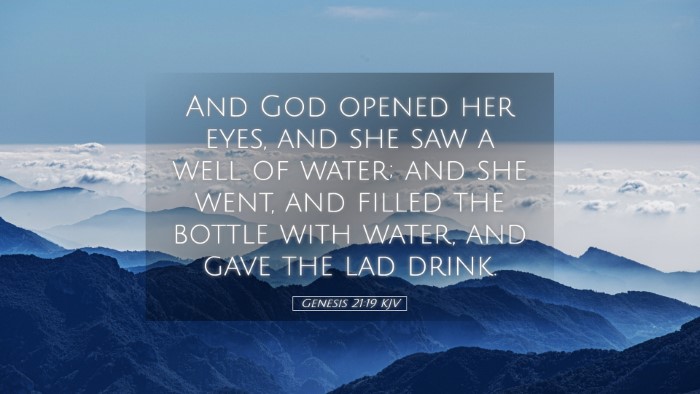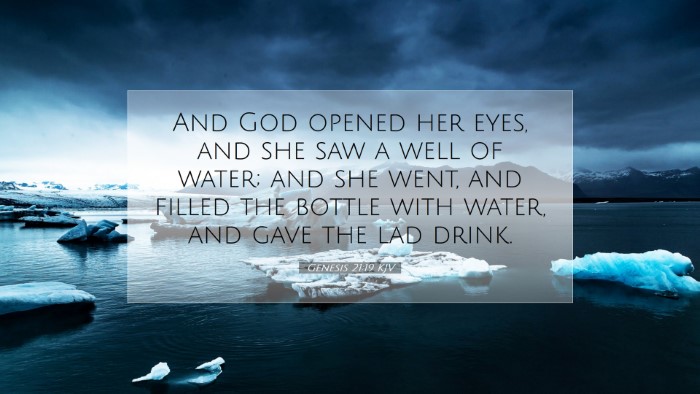Commentary on Genesis 21:19
Genesis 21:19 states, "Then God opened her eyes, and she saw a well of water; and she went and filled the skin with water, and gave the lad a drink." This passage occurs in the narrative concerning Hagar and her son Ishmael, highlighting themes of divine providence, compassion, and the significance of spiritual awakening.
Contextual Background
After the birth of Isaac, Hagar and Ishmael find themselves cast out, as Sarah demands their removal from her household due to the perceived threat of Ishmael's status as the son of Abraham. Hagar, facing dire circumstances in the wilderness, symbolizes the plight of the marginalized and the forgotten.
Insights from Commentaries
Matthew Henry's Commentary
Henry emphasizes the pitiful condition of Hagar, who, after being sent away, wandered in the wilderness of Beersheba. He notes that she was in a state of despair, believing Ishmael was about to die from thirst. Henry remarks on the mercy of God, who opened her eyes to see a well of water. This divine intervention illustrates that God cares for the forsaken and can provide for the desperate.
Albert Barnes' Exposition
Barnes points out that the opening of Hagar's eyes signifies a profound realization not just of physical needs but also of spiritual insight. He posits that God’s provision was preordained and signifies a broader theological truth: God's mercy extends even to those we may overlook. Barnes highlights the well as a type of Christ, the Living Water, which offers both physical sustenance and spiritual renewal. Hagar’s ability to fill the skin with water after her eyes were opened symbolizes the enlightenment granted by God.
Adam Clarke's Commentary
Clarke reflects on the emotional turmoil Hagar must have experienced. He states that her cry of desperation reached God, prompting divine assistance. Clarke emphasizes the importance of the moment when her eyes were opened; it was an act of revelation that provided her not only with physical water but also with hope. He further notes that the well represents God's unceasing provision and presence, often unseen until we call upon Him. The act of Hagar filling the skin is seen as a faithful response to divine assistance, which echoes the biblical theme of reliance upon God.
Theological Themes
- Divine Provision: The concept of God providing for those in need is central in this verse. Hagar, despite her status as an outcast, is cared for by God. This serves as a reminder that divine sustenance can manifest in the most desperate situations.
- Spiritual Enlightenment: The opening of Hagar’s eyes to see the well symbolizes a spiritual awakening. This can be likened to how God opens the eyes of believers to understand His truth and provision in their lives.
- God’s Compassion towards the Marginalized: Hagar's plight represents those who are on the fringes of society. The verse showcases God's concern for the downtrodden and His will to intervene in their dire situations.
- Symbolism of Water: Water is frequently used in the Bible to illustrate life, nourishment, and spiritual fulfillment. Hagar’s discovery of water is emblematic of the life Christ offers to believers, as expressed in John 4:14.
Practical Applications
For pastors and theologians, the message of Genesis 21:19 provides fertile ground for discussion and application:
- Encouragement for the Despairing: This passage can serve as a comfort to those who feel abandoned or discouraged, reminding them that God sees and cares for their plight.
- Inspiration for Ministry to the Marginalized: Churches are called to recognize and assist those in need, echoing the compassionate actions of God illustrated in this narrative.
- The Importance of Spiritual Awareness: The requirement of Hagar's eyes to be opened before she could see the well presents a challenging call to cultivate spiritual sensitivity and awareness of God's presence in our lives.
- Fostering Reliance on God: Hagar's journey highlights the necessity of relying on God for our needs and circumstances, a theme that resonates throughout Scripture.
Conclusion
Genesis 21:19 is a poignant reminder that in moments of deep despair, God is ever-present and ready to provide for His children. It illustrates the essential nature of both physical and spiritual sustenance granted by divine grace. By heeding the insights offered by the commentaries of Henry, Barnes, and Clarke, we gain a richer understanding of this passage that encourages believers to trust in God’s unfailing provision.


